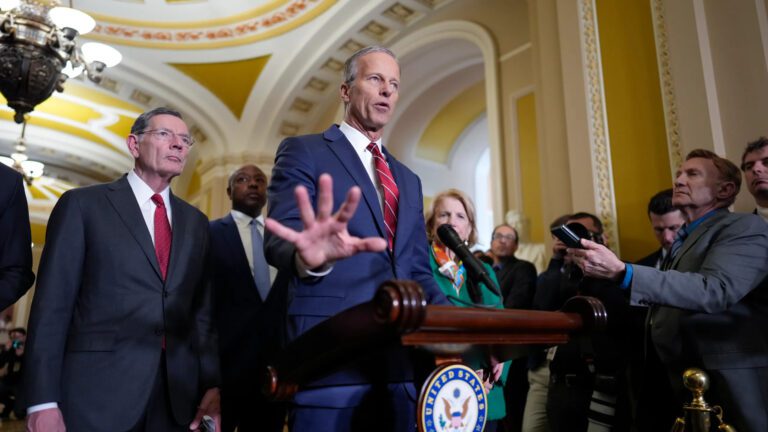🎧 Listen to This Article
Senate Republicans are taking an unprecedented step to bypass the Senate parliamentarian and push forward a budget resolution that would allow them to extend former President Trump’s 2017 tax cuts without officially adding to the deficit.
Budget Committee Chair Lindsey Graham (R-S.C.) is poised to set a scoring baseline that defines extending these tax cuts as “current policy,” effectively preventing them from being counted as new expenditures. This maneuver would enable the Republican-controlled Congress to make the 2017 Tax Cuts and Jobs Act (TCJA)—one of Trump’s signature legislative achievements—permanent.
Senate Majority Leader John Thune (R-S.D.) emphasized that Graham has the authority to determine whether the tax cuts would add to the deficit. However, Democrats are challenging this approach, arguing that Republicans are disregarding Senate norms to push through tax breaks for high earners.
The decision to bypass parliamentarian oversight is already drawing strong criticism from Senate Democrats, who accuse Republicans of a “nuclear” move to rewrite fiscal rules for political gain. Senate Democratic Leader Chuck Schumer (D-N.Y.) warned that such a move would set a dangerous precedent and add trillions to the national debt.
The stakes are high. If Republicans succeed, the 2017 tax cuts could be locked in permanently. If the parliamentarian rules against them, Republicans may attempt to override the decision with a simple majority vote—triggering a potential showdown over Senate rules.
With the 2025 expiration of Trump’s tax cuts looming, this legislative battle will shape the future of U.S. tax policy and fiscal responsibility.
For further details, clarification, contributions, or any concerns regarding this article, please contact us at editorial@tax.news. We value your feedback and are committed to providing accurate and timely information. Please note that our privacy policy will handle all inquiries



